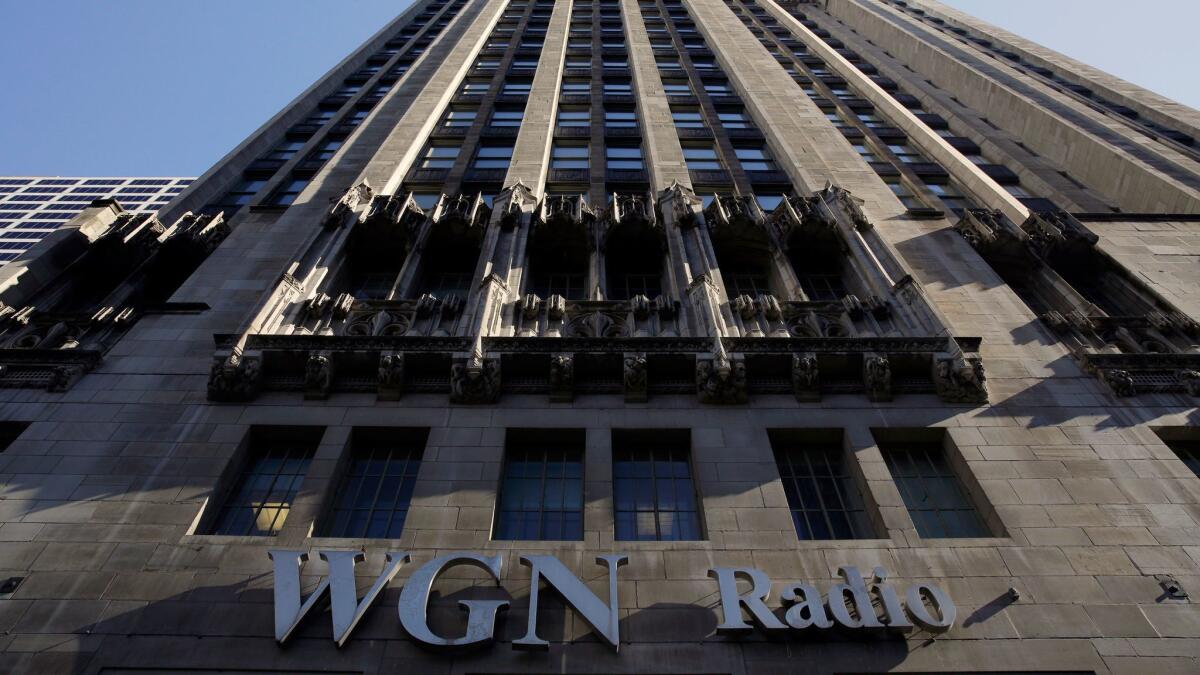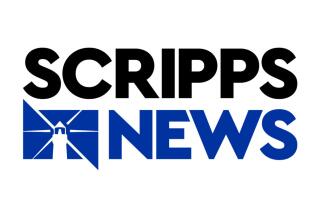Will Sinclair Broadcast Group take on Fox News after buying Tribune Media in a $3.9-billion deal?

- Share via
Sinclair Broadcast Group Inc., the Baltimore-based company that has kept a low profile, will become a nationwide player with the planned acquisition of Tribune Media and its 42 TV stations, giving it a powerful platform to potentially launch a right-leaning programming service to rival Fox News.
The company, which already is the largest TV station group owner in the U.S. with 139 stations, has operated largely out of the media business fishbowl because it had no outlet in New York or Los Angeles.
Now, with the Tribune acquisition, Sinclair will have a footprint in most of the country’s major markets, spanning about a third of the nation’s households.
Sinclair said Monday that it will acquire Tribune Media Co. for $3.9 billion plus the assumption of about $2.7 billion in debt. Tribune shareholders are to receive $35 in cash and 0.23 of a share of Sinclair common stock for each Tribune share; based on Tribune’s closing stock price Friday, that’s a total value of $43.50 a share.
Tribune shares closed Monday at $42.40, up $2.11, or 5%. Sinclair shares closed at $36.12, down 83 cents, or 2%.
The deal — which is subject to approval by the Federal Communications Commission — would give Sinclair a presence in the top three TV markets: KTLA in Los Angeles, WPIX in New York and WGN in Chicago. WGN is Tribune’s flagship station, founded by the Chicago Tribune in 1948. Tribune has owned KTLA since 1985.
Tribune, based in Chicago, is the former parent company of the Los Angeles Times and Chicago Tribune. The two newspapers, along with Tribune’s other publishing properties, were spun off into a new company — now named Tronc Inc. — in 2014.
Sinclair beat out other potential bidders for the Tribune stations, including Nexstar Media Group and 21st Century Fox, owner of Fox News.
“This is a transformational acquisition for Sinclair that will open up a myriad of opportunities for the company,” Sinclair Chief Executive Chris Ripley told investors.
The deal follows recent moves by the FCC to loosen restrictions on ownership of local TV stations, changes that could create a wave of deal-making in the broadcast industry.
Sinclair, which has a reputation for injecting conservative commentary in local news, could leverage the cable and satellite retransmission deals for its TV stations to get carriage of a potential new news channel that could skew politically to the right of Fox News. Sinclair could also put such a network with national reach on its over-the-air digital multicast channels, analysts said.
“I think they have ambitions to do that,” said Ben Bogardus, an assistant professor of broadcast journalism at Quinnipiac University who is a former news producer at Sinclair’s Washington, D.C., station WJLA. “They’ve bought up enough real estate and market share that they can legitimately launch a national news station and they have content to fill it.”
Sinclair has used its TV stations to launch the Sunday morning public affairs program “Full Measure With Sharyl Attkisson.” Attkisson is a former CBS News correspondent who contended the government hacked her computer after her aggressive reporting on the Obama administration. When she left CBS after 20 years at the network, she went public in saying there was a liberal bias in its coverage.
Sinclair could also tap another disaffected big name to program national news content — the recently fired Fox News anchor Bill O’Reilly, who was ousted amid claims of sexual harassment. O’Reilly left Fox News at the peak of his popularity, drawing more viewers than any cable news program.
“If they want to start something up they want to do it with as much press as possible and as much bang as possible,” Bogardus said. “Bill O’Reilly would get you that.”
In discussing the Tribune deal with investors Monday, Sinclair did not disclose any plans to enter the news business on a national scale, but the company’s penchant for conservative politics has already drawn fire from critics.
“Sinclair’s acquisition of Tribune Broadcasting is expected and disappointing,” said former FCC Commissioner Michael Copps. “Expected because the new FCC majority is foaming at the mouth to rubber-stamp more massive media mergers; and disappointing because Sinclair is not known for the best journalism in the land, to put it mildly. Our nation’s civic dialogue suffers yet another blow with this merger.”
The FCC under the Trump administration has indicated it intends to raise the limits on the ownership for TV stations, currently capped at reaching 39% of the country. Sinclair is able to make the deal to buy the Tribune stations due to the FCC’s recent re-implementing of the “UHF discount,” in which the cap’s coverage area for ultra-high frequency stations is cut in half. Some stations in the combined company would still have to be sold to meet current regulations.
Bill Hague, executive vice president at the consulting firm Frank Magid Associates, which advises Sinclair stations, said Sinclair is committed to investing in local news and is largely fair in its coverage.
“The group sees great value for advertisers and viewers in local news and information and the responsibility that comes with that,” he said. “We’ve seen them double down on their local news operations.”
Nonetheless, Sinclair has raised concerns about imposing its editorial views. In 2004, the company refused to air an edition of “Nightline” on its ABC affiliate stations that was devoted to honoring members of the military who died in Operation Iraqi Freedom, saying it was a political statement that undermined U.S. policy.
During the 2016 election, Sinclair stations were perceived to have offered Donald Trump soft interviews on local news outlets in states that were important to his electoral college victory. The station group recently hired Borys Epstein, a former White House spokesman, as a commentator.
The Tribune deal would give Sinclair tremendous clout in the TV industry, as it will be the largest holder of stations affiliated with Fox, ABC and CBS. With Fox and CBS rights holders to NFL Football, Sinclair will have strength when it goes to the negotiating table with satellite and cable outlets looking to cut deals to carry its station signals.
One consumer advocate group said the concentrated power of a Sinclair-Tribune combination will ultimately lead to higher pay TV rates for consumers.
“By tying together multiple markets in retransmission consent negotiations, companies like Sinclair are able to demand higher payments for their signals,” said John Bergmayer, senior counsel at Public Knowledge. “Consumers ultimately foot the bill.”
With Tribune, Sinclair will also get the general entertainment network WGN America, Chicago radio station WGN, over-the-air digital multicast networks Antenna TV and This TV, and a stake in the Food Network, the website CareerBuilder.com and real estate assets.
WGN America is the one asset that is most likely to change under new ownership. Ripley, Sinclair’s CEO, told investors on a conference call that the channel’s programming costs are too high based on the ratings, a sign that its push into original scripted shows such as “Underground” and “Salem” probably will not continue.
Twitter: @SteveBattaglio
MORE BUSINESS NEWS
John Oliver tries to save the tough net neutrality rules he championed
Coach to buy Kate Spade for $2.4 billion
Jammed phone lines compounded Delta’s troubles during heavy storms
How to find the right balance when investing
UPDATES:
6:20 p.m.: This article was updated with additional reaction to Sinclair Broadcast Group’s deal to buy Tribune Media.
This article was originally published at 6:55 a.m.
More to Read
Inside the business of entertainment
The Wide Shot brings you news, analysis and insights on everything from streaming wars to production — and what it all means for the future.
You may occasionally receive promotional content from the Los Angeles Times.











